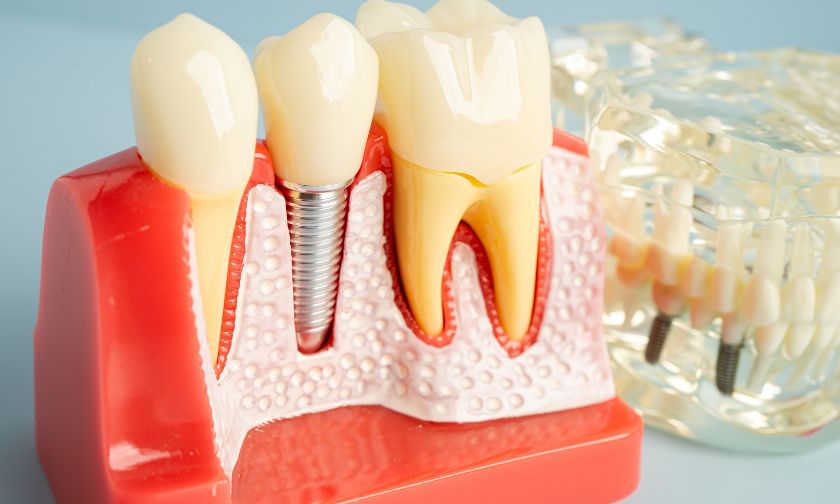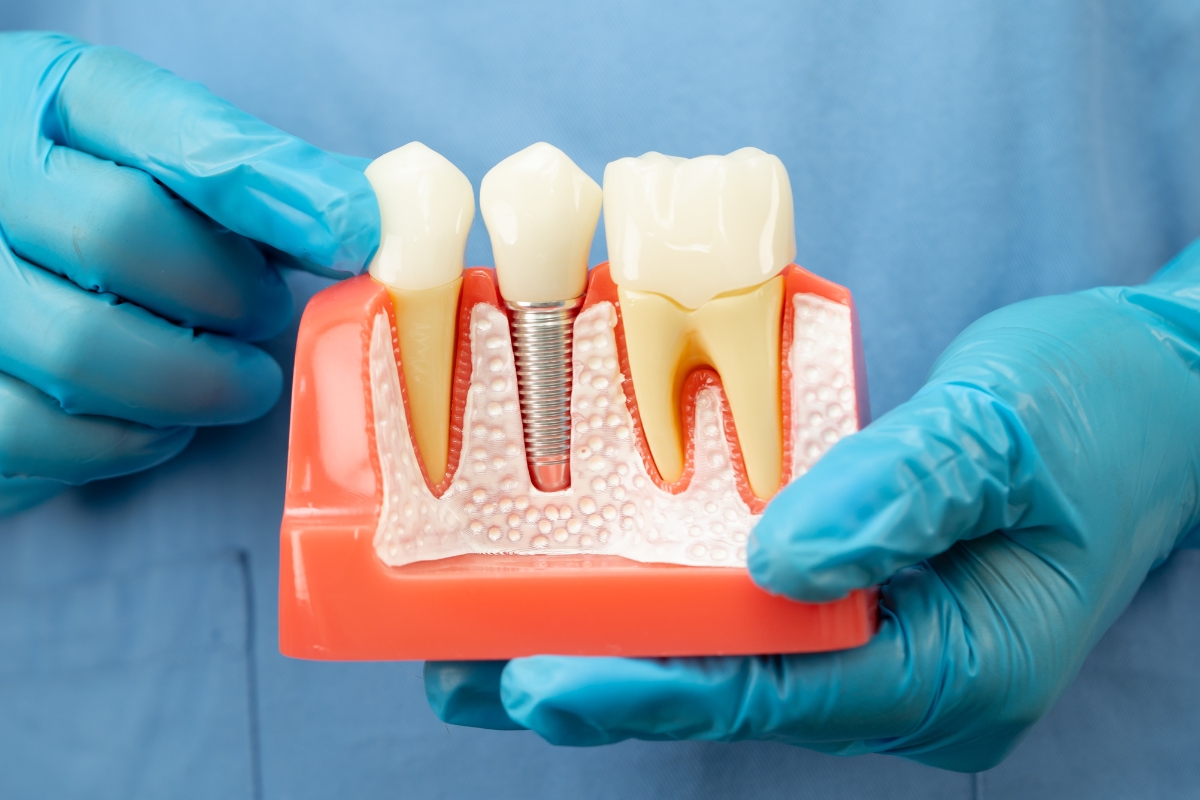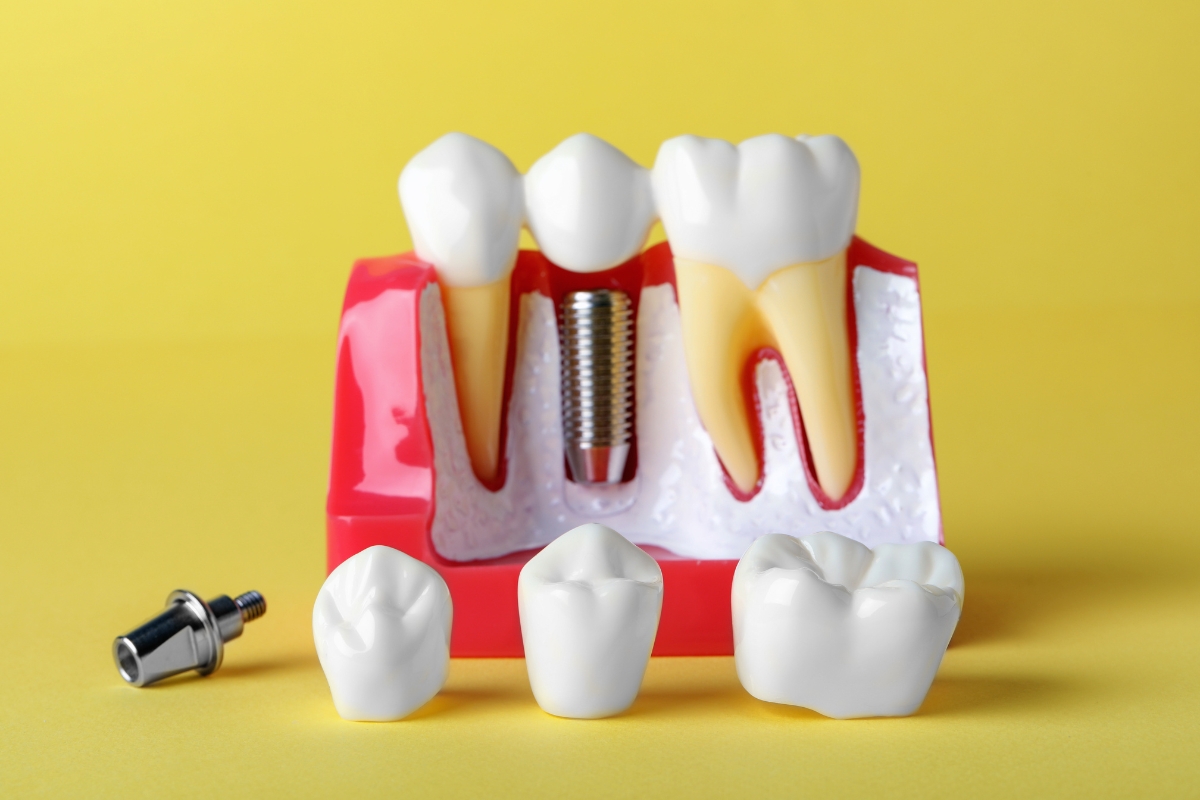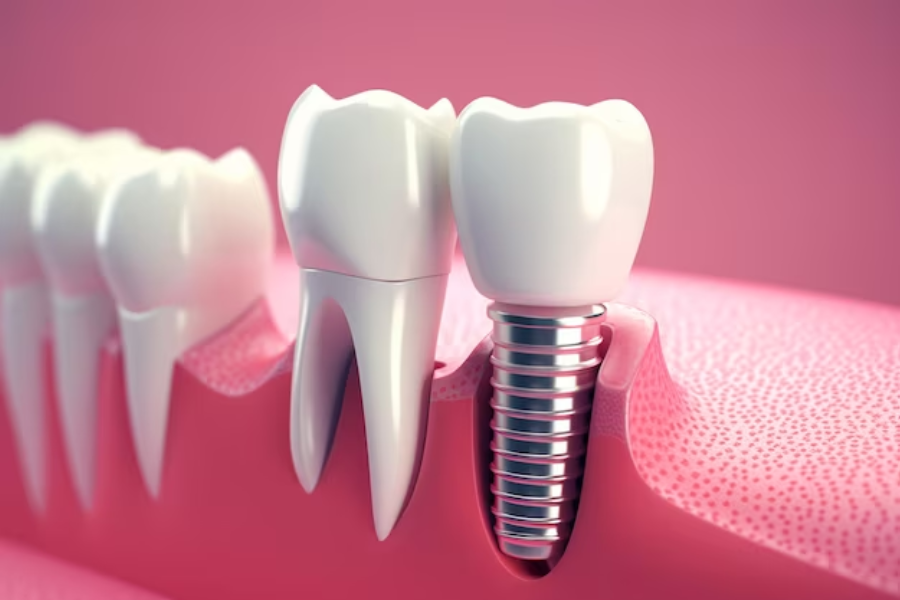
A dazzling smile is more than just aesthetics; it’s a confidence booster and a gateway to overall well-being. However, missing teeth can put a damper on both your smile and your health. Dental implants, a revolutionary tooth replacement option, have emerged as a game-changer, offering unparalleled functionality and a natural look. Yet, many people need more confidence due to a web of misconceptions surrounding dental implants. Before you dismiss this innovative treatment, let’s debunk five common myths and shed light on the reality of dental implants.
Myth #1: Dental Implants Are Painful and Invasive
The thought of surgery often conjures images of intense pain and lengthy recovery times. While dental implant placement involves a minor surgical procedure, advancements in techniques and anesthesia have significantly reduced discomfort.
Most patients experience minimal pain, which can be effectively managed with over-the-counter medication. The procedure itself is often performed under local anesthesia, ensuring you remain awake and comfortable throughout. Additionally, modern dental technology allows for minimally invasive techniques. As a result, it minimizes surgical trauma and promotes faster healing.
Myth #2: Dental Implants Look Fake and Unnatural
One of the biggest concerns for many is the aesthetics of dental implants. However, this couldn’t be further from the truth. Dental implants are designed to mimic the natural structure of teeth, including the root and the crown.
The implant itself is a biocompatible titanium screw surgically placed in the jawbone. This screw acts as an artificial root, providing a stable foundation for the crown, the visible portion of the tooth. In fact, due to their exceptional stability and integration with the jawbone, dental implants often look and function more naturally than dentures or bridges.
Myth #3: Dental Implants Are Not Long-Lasting
Unlike dentures or bridges, which require regular adjustments or replacements, dental implants are designed for long-term success. With proper care and maintenance, dental implants can last a lifetime. The high success rate of dental implants is attributed to their unique ability to integrate with the jawbone through a process called osseointegration. This process creates a strong bond between the implant and the bone. As a result, it prevents loosening and ensures long-lasting functionality.
Myth #4: Dental Implants Are Only for Young and Healthy Individuals
Age is not a significant barrier when considering dental implants. As long as you have good overall health and sufficient jawbone density, you can be a candidate for dental implants, regardless of your age. However, certain medical conditions or poor bone health might require additional procedures like bone grafting before implant placement. A consultation with a qualified dentist will help determine if dental implants are the right solution for you. Also, they’ll help you address any concerns you may have about your health situation.
Myth #5: Dental Implants Are Too Expensive
While the initial cost of dental implants might seem higher compared to other tooth replacement options, it’s crucial to consider the long-term value they offer. Unlike dentures or bridges, which require frequent replacements and adjustments, incurring additional costs over time, dental implants are a one-time investment. Additionally, they eliminate the need for special cleaning solutions or adhesives associated with dentures, further reducing long-term expenses.
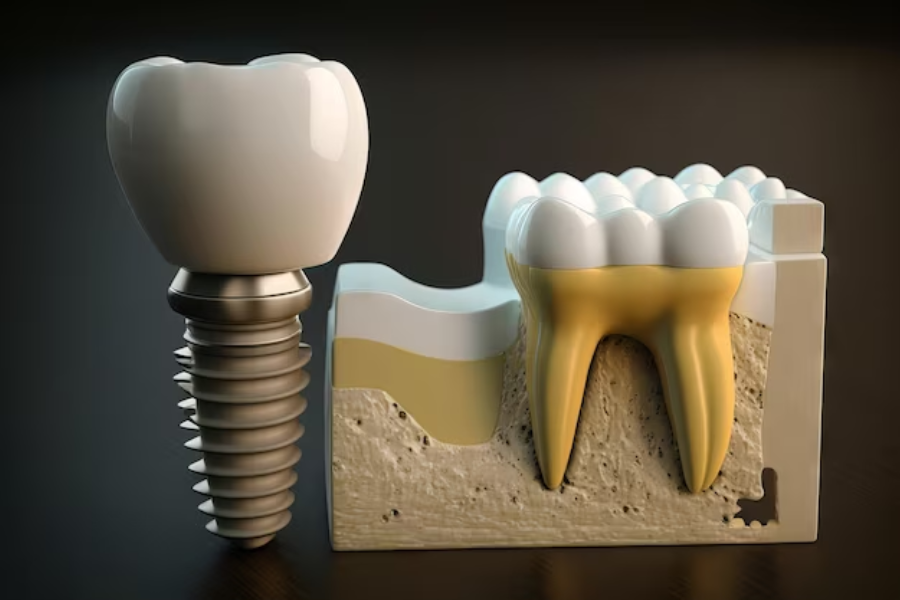
Are Dental Implants Right for You?
Having explored the myths surrounding dental implants, you might be curious to know if they’re the ideal solution for you. Here are some factors to consider:
Ideal Candidates for Dental Implants
Individuals with missing teeth: Whether you’re missing a single tooth, multiple teeth, or all your teeth, implants offer a stable and long-term solution for restoration.
Good oral health: Healthy gums and sufficient jawbone density are crucial for successful implant placement and osseointegration (fusion with the jawbone).
Commitment to oral hygiene: Maintaining excellent oral hygiene is vital for the long-term success and longevity of your implants.
Preference for a permanent solution: Unlike dentures that require removal and cleaning, implants are fixed and function similarly to natural teeth.
Desire for a natural appearance: Implants provide a natural-looking restoration that blends seamlessly with your surrounding teeth.
Ability to invest in oral health: While a significant investment, implants offer long-lasting benefits and can improve your quality of life.
Additional Considerations
- Medical conditions: Certain medical conditions may require additional evaluation before proceeding with implant surgery. Discuss your medical history openly with your dentist.
- Smoking: Smoking can negatively impact healing and increase the risk of implant failure. Consider quitting smoking before or during the implant process.
- Alternatives: Discuss alternative tooth replacement options like bridges or dentures with your dentist to determine the best fit for your needs and budget
Dental implants may seem complex, but hopefully, this discussion has shed light on some common misconceptions. With their durability, natural look, and improved oral health benefits, implants are a strong option for replacing missing teeth. If you’re considering dental implants, talk to your dentist about your situation to see if they’re the right fit for your smile.


